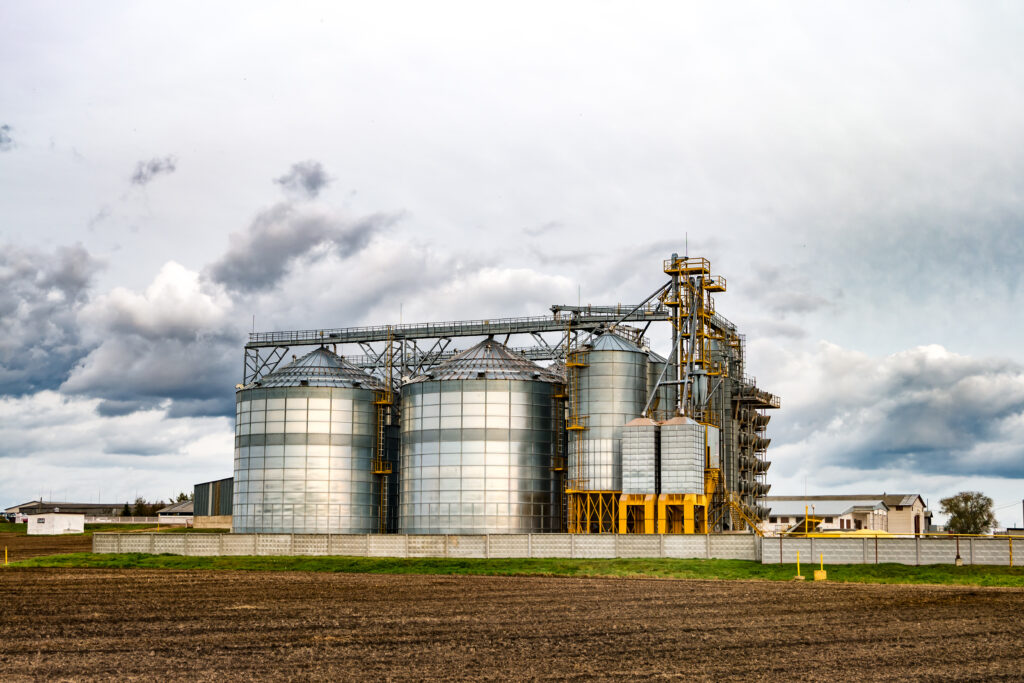In today’s ethanol industry, Carbon Intensity (CI) is more than just a buzzword—it’s a critical metric that influences the marketability, sustainability, and overall competitiveness of ethanol producers. CI scores reflect the amount of carbon dioxide emitted during the production and use of a fuel, with lower scores indicating a more environmentally friendly product. For ethanol plants, improving CI scores isn’t just about enhancing their environmental profile; it’s about staying competitive in a market that increasingly prioritizes sustainability.

However, achieving low CI scores is easier said than done. One of the significant challenges that ethanol plants face is managing thin stillage—a byproduct of the ethanol production process. Thin stillage is notoriously difficult to handle due to its high moisture content, and its management can have a substantial impact on energy consumption, operational costs, and ultimately, CI scores.
ZwitterCo’s advanced membrane technology offers an innovative approach to processing high protein and organic streams, efficiently concentrating thin stillage, reducing energy consumption, and improving CI scores in ways that were previously unimaginable.
The Challenge of Thin Stillage in Ethanol Plants
What is Thin Stillage?
Thin stillage is the liquid byproduct left after ethanol is distilled from fermented mash such as wheat, barley, corn and many others. This mixture is full of suspended solids, proteins, and fat/oils, which is typically concentrated using evaporators before further processing or disposal. The problem? Thin stillage is produced in large volumes, which places a heavy burden on the evaporators.
Impact on Evaporators and CI Scores
High volumes of thin stillage mean evaporators must work overtime to concentrate the mixture. This process requires a significant amount of energy, contributing to higher operational costs and, more importantly, negatively impacting the ethanol plant’s CI score. The more energy-intensive the process, the higher the CI score, making the ethanol produced less attractive in markets where low-carbon fuels are preferred.
ZwitterCo Membrane Technology: A Game-Changer
Introduction to ZwitterCo’s SF Membranes
ZwitterCo superfiltration (SF) membranes represent a breakthrough in thin stillage management. These advanced membranes are designed to efficiently concentrate thin stillage by more than 3x, significantly reducing the load on downstream evaporators by over 75%. But the benefits don’t stop there.
Beyond Thin Stillage: Tackling Other High-Organic Streams
ZwitterCo membranes aren’t just limited to thin stillage. They are also highly effective in pre-concentrating other streams high in organics that can be further concentrated by evaporators or reused in a plant. Some notable streams are meat and poultry waste streams for protein/nutrient recovery as well as enzyme retention and concentration for reuse purposes. This pre-concentration process further reduces energy consumption and operational costs, improving overall plant efficiency and helping to achieve better CI scores.
The Benefits of ZwitterCo Membrane Technology
Concentrating Thin Stillage and Energy Savings
By concentrating thin stillage more efficiently, ZwitterCo SF membranes drastically reduce the volume of liquid that needs to be evaporated. This reduction in evaporative load translates to significant energy savings—reducing the load on downstream evaporators by up to 75%.
Producing Low CI Sugar Streams
Another major advantage of ZwitterCo SF membranes is their ability to produce clean, low CI sugar streams. These membranes effectively remove total suspended solids (TSS), proteins, fats/oils, and other large organic compounds from sugar streams after saccharification, resulting in a high-quality sugar stream with a low CI. These sugar streams can then be marketed as a more sustainable product, aligning with the growing demand for environmentally friendly solutions.
Financial Benefits: Reduced CAPEX and OPEX
Reducing the evaporative load by over 75% doesn’t just save energy—it also makes capital expenditures (CAPEX) and operational expenditures (OPEX) more manageable. With lower energy requirements, ethanol plants can reduce the size and cost of their evaporators, leading to substantial savings on both initial investment and ongoing operational costs.
Additionally, ZwitterCo membranes are designed to handle high-strength wastewater and organic-rich process streams without suffering from irreversible organic fouling while also cleaning effectively with basic cleaning chemicals such as sodium hydroxide. This durability reduces the need for frequent cleanings, further cutting down on maintenance costs and extending the lifespan of the membranes.
Marketability and Sustainability
In today’s market, sustainability is a key differentiator. Ethanol plants that can produce low CI products and co-products not only improve their environmental footprint but also enhance their marketability. ZwitterCo SF membranes enable ethanol producers to deliver on both fronts—providing a sustainable product that meets the growing demands of eco-conscious consumers while also boosting the plant’s profitability.
A Brief Look at ZwitterCo RO Membranes
In addition to our SF membranes, ZwitterCo offers a range of other membrane solutions – including reverse osmosis (RO) membranes that are designed to tackle one of the most persistent challenges in ethanol production: fouling. Systems treating plant wastewater, or surface water for their boiler feed, often experience organic fouling that requires frequent RO cleanings with complex and expensive chemicals, which results in short membrane life and high OPEX. ZwitterCo has integrated its patented zwitterionic technology with proven commercial brackish water membranes to deliver unprecedented fouling resistance to reduce cleaning frequency and cut costs. This technology can help ethanol plants meet discharge targets and maintain operational efficiency, further contributing to improved CI scores.
The Future of Ethanol Production with ZwitterCo
ZwitterCo’s membrane technology represents a significant advancement in the ethanol industry, offering a more efficient, cost-effective, and sustainable approach to managing thin stillage and other high-organic streams. By reducing the load on evaporators, cutting energy consumption, and thereby improving CI scores, ZwitterCo membranes can help ethanol plants stay competitive in a market that increasingly values low-carbon solutions.
As the ethanol industry continues to evolve, adopting technologies that enhance sustainability while reducing costs will be crucial. ZwitterCo’s innovative membrane solutions provide the tools needed to meet these challenges head-on, ensuring that ethanol producers can achieve their sustainability goals while also improving their bottom line.
Explore ZwitterCo membrane solutions today to discover how they can transform your ethanol plant’s operations, driving down costs and boosting sustainability.

